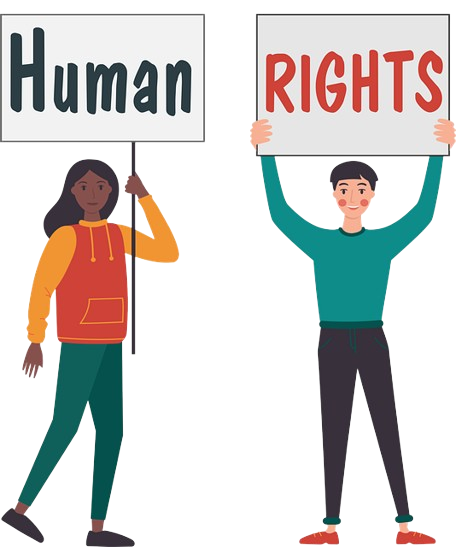Saudi Arabia has lifted its restrictions on women traveling abroad in the most visible relaxation of the country’s notorious guardianship system, allowing them to travel abroad without their husbands. It marks another step forward for gender equality, more than a year after the kingdom ended the world’s only ban on women driving. However, many women who fought to end guardianship rules – which make women legal dependents of male relatives – are barred from traveling or even jailed. Women’s rights progress unevenly in Saudi Arabia, as well as in North Africa and the Middle East, a region that is regularly ranked as the worst or second-worst performer in sub-Saharan Africa in overall assessments of gender equality. The role of women has been the subject of ongoing public debate, in which campaigns for equal treatment have resisted entrenched patriarchal and conservative forces.
1. What will the new travel rules mean?
Legislative changes approved by the Saudi king, which will come into force at the end of August, will allow women over 21 to obtain passports and travel without obtaining the consent of their guardian (husband). A woman’s place of residence will no longer be determined by her husband, and women will be allowed to report marriages, divorces and births like men. Some restrictions remain, such as the requirement that women obtain permission from a guardian (father or older brother) to marry, and this rule also applies in many neighboring countries.
2. What is the origin of the guardianship system?
Guardianship laws largely stem from a strict interpretation of a verse from the Quran, Islam’s holy book. In 2016, activists presented a petition with 14,000 signatures to the Royal Court demanding an end to the system. Some conservatives in the kingdom have long opposed such changes, which run counter to Islam, and the policy change could lead to clashes within families.
3. Why is Saudi Arabia loosening laws?
The Saudi monarchy is pursuing an ambitious campaign to diversify the economy and wean the kingdom away from its dependence on oil revenues. For more women to have paid work, they must be able to move more freely. Several high-profile cases of young women fleeing the kingdom have also added to the pressure. In January, a young Saudi woman who fled her family, barricaded herself in a Bangkok hotel room and demanded asylum became an emblem for the campaign to roll back the rules.
4. Where are women’s rights developing in the region?
The gains are most noticeable in Tunisia, the birthplace of the democratic uprisings known as the Arab Spring that began in late 2010. The country’s 2014 constitution, hailed as a model by activists, affirms equal rights and responsibilities for male and female citizens and says the state will strive to achieve parity in all elected assemblies. Tunisia also stands out for repealing legislation prohibiting Muslim women from marrying non-Muslim men, a prohibition still common throughout the region. Tunisia has also passed laws against economic discrimination and harassment of women.
5. What achievements have women made elsewhere?
Since the Arab Spring, seven of the region’s 20 Muslim-majority countries and territories have joined Tunisia in criminalizing domestic violence. These include Morocco, Lebanon and Saudi Arabia. Six governments have repealed colonial-era laws that allowed a rapist to avoid prosecution by marrying his victim and thereby preserving the “honor” of his family. And women are breaking into traditionally male spheres. The United Arab Emirates’ first female fighter pilot led the country’s first airstrike against the Islamic State in Syria in 2014. A Jordanian woman has become the first from a Middle Eastern country to become a professional wrestler. One in three startups in the Arab world is now founded or led by a woman.

6. Do women gain political power?
Slowly. Women’s representation in national parliaments rose to an average of 17.5% in 2017 from 4.3% in 1995. The global average is 23.4%. Basically, since 2010, 11 countries and the Palestinian Authority have passed legislation increasing women’s participation in political life, mainly through quotas ensuring a minimum percentage of candidates for office – Tunisia is one of the few countries in the world to require equal representation of men and women among list of candidates. In 2011, Saudi Arabia became the last country to grant voting rights to women. for women. The UAE elected the region’s first woman speaker of parliament in 2015, and several women have won mayoral elections, including in Baghdad, Tunisia and Bethlehem in the West Bank. Tunisia appointed a woman as deputy head of its central bank in 2018.
7. What are the biggest obstacles remaining?
Twelve of the 15 countries in the world with the lowest rates of female labor force participation are in North Africa and the Middle East, according to a report by the World Economic Forum. Social pressure remains strong, especially outside cities, for women to stay at home. Obstacles to equality include neglect and lax enforcement of rules against child marriage, as well as laws that give a husband the right to unilaterally divorce his wife. The Tunisian Cabinet approved a proposal to equalize the inheritance rights of sons and daughters, but parliament was unable to ratify it. It would be a bold move in a region where laws typically award daughters only half of what sons receive, according to traditional interpretations of Islam’s holy texts. In Egypt, a woman was detained for three months and given a one-year suspended sentence for complaining in an online video about sexual harassment.
